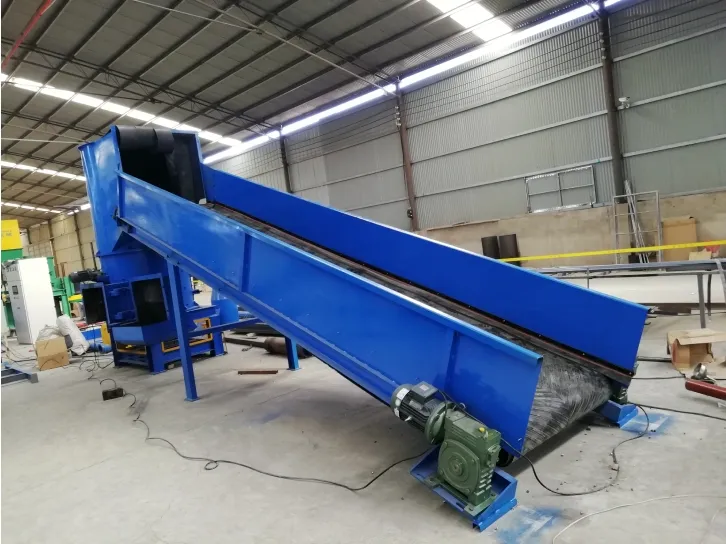

okt . 17, 2024 04:36 Back to list
The Integral Role of Scrap Metal Plants in Today's Economy
In an age characterized by rapid industrialization and technological advancement, the significance of recycling and sustainable practices has never been more pronounced. Scrap metal plants have emerged as pivotal players in this transition towards greener economies. These facilities not only contribute to environmental conservation but also serve as vital components of economic growth and resource management.
Understanding Scrap Metal Plants
Scrap metal plants are specialized facilities that process discarded metals, transforming them into reusable materials. These plants handle a wide array of metals, including aluminum, copper, steel, and iron. The recycling process begins with the collection of scrap metal from various sources such as construction sites, automobile junkyards, and electronic waste centers. Once collected, the metal is sorted, cleaned, and then melted down to create new products.
Economic Impact
The economic impact of scrap metal plants is profound. The recycling industry generates billions of dollars annually, contributing significantly to local and national economies. Scrap metal processing not only creates jobs within the plants themselves but also supports a larger network of industries, including transportation, logistics, and manufacturing. According to industry reports, for every job created in the recycling sector, several additional jobs are generated in related fields.
Moreover, scrap metal recycling helps stabilize metal prices. When the demand for new metals increases, the supply from recycled sources provides a buffer that can mitigate price spikes. This balance is crucial for manufacturers who rely on metals as raw materials, allowing them to maintain production levels without excessive cost fluctuations.
Environmental Benefits
The environmental benefits of scrap metal recycling cannot be overstated. Mining new metals is a resource-intensive process that depletes natural reserves and generates significant waste. In contrast, recycling metals requires substantially less energy. For instance, recycling aluminum uses up to 95% less energy than extracting new aluminum from bauxite ore. This not only conserves natural resources but also reduces greenhouse gas emissions, making recycling a critical strategy in combating climate change.

Scrap metal plants also help reduce landfill waste. In many regions, metal waste constitutes a large portion of landfill materials, which can lead to soil and groundwater contamination. By diverting these metals from landfills, scrap metal plants play a crucial role in waste management and environmental preservation.
Technological Innovations
The scrap metal recycling industry has rapidly evolved in recent years, with technological advancements enhancing efficiency and effectiveness. Modern facilities employ sophisticated machinery for sorting and processing metals. Automated systems can identify different types of metals and separate them with precision. Advanced shredders and smelting technologies ensure that the recycling process is not only efficient but also environmentally friendly.
Furthermore, many scrap metal plants are beginning to adopt green practices, including the use of renewable energy sources to power operations. This shift not only reduces their carbon footprint but also promotes a sustainable business model that aligns with global efforts toward environmental responsibility.
Challenges and Future Prospects
Despite their numerous benefits, scrap metal plants face several challenges. Fluctuations in global metal prices, changes in recycling regulations, and competition from new materials can all impact the industry. Additionally, the rise in electronic waste poses unique challenges, as many electronic devices contain valuable metals that require specialized recycling processes.
Looking to the future, the integration of artificial intelligence and machine learning into operational processes promises to streamline sorting and increase the overall efficiency of scrap metal recycling. As technology continues to advance, the potential for innovation in the scrap metal industry is vast.
Conclusion
In conclusion, scrap metal plants play an essential role in fostering a sustainable economy. By recycling metal, these facilities contribute to environmental preservation while simultaneously bolstering economic growth. As society becomes increasingly aware of the importance of recycling, the adoption of advanced technologies and sustainable practices at scrap metal plants will likely become more widespread. The future of scrap metal recycling not only holds promise for the industry itself but also for the health of our planet and future generations.
Latest news
Troubleshooting Common Eddy Separator Problems
NewsJul.04,2025
The Role of Metal Recycling Plants in Circular Economy
NewsJul.04,2025
The Impact of Recycling Line Pickers on Waste Management Costs
NewsJul.04,2025
Safety Features Every Metal Shredder Should Have
NewsJul.04,2025
How Industrial Shredders Improve Waste Management Systems
NewsJul.04,2025
How Cable Granulators Contribute to Sustainable Recycling
NewsJul.04,2025